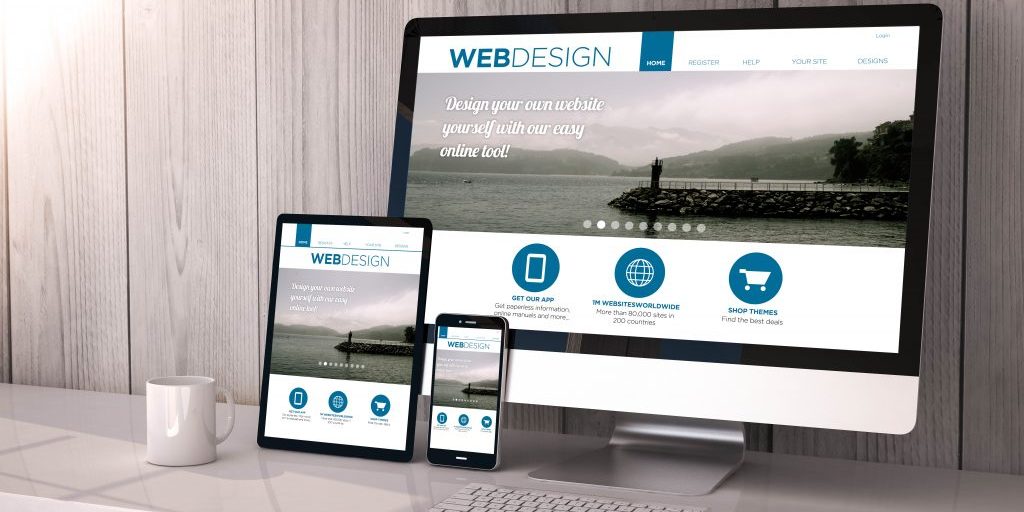Top Emerging Design Trends for Law Firm Websites in 2018
BY Dipal Parmar

LISTEN
Law firms trying to stand out from competitors know that having an effective website is essential for creating a good first impression on potential clients.
Websites need to be designed to ensure they appeal to the target audience while conveying the brand’s message and personality.
Because web design is constantly evolving with both fresh ideas and concepts recycled from the past, it can often be hard to keep up with the latest trends in the online world. This year, web design is expected to be dominated by bold colors, illustrations, asymmetry and data-heavy content. While not all web design trends may be useful, understanding them can help lawyers decide what might be a good fit for their law firm.
Focus on data
This year, web design will continue shining a spotlight on quality content. While eye-catching design serves to attract visitors, people visit websites primarily in search of useful, relevant information.
Focusing on data is especially beneficial during a time when audiences have limited attention spans and are scanning websites to quickly access the information they need. Instead of relying solely on long copy, law firms can select some key pieces of data or facts that may be of interest to potential clients, such as details about various practice areas or past cases.
The website should emphasize the data in a visually impactful way that makes it easy for readers to digest. Ultimately, the most important task of web design is to present content in the best way possible.
Explanatory illustrations
Illustrations are expected to take center stage in 2018 when it comes to the visual elements of web design. Illustrations can be a powerful tool for helping website visitors better understand abstract or complex concepts. They can also bring dull statistics and facts to life for the reader.
Law firms can use custom explanatory illustrations on their websites to present information in a way that feels authentic and engaging. For example, a personal injury attorney may use illustrations to depict the common types of accidents that can result in a personal injury lawsuit. A car accident lawyer may want to share data on the number of crash fatalities that have occurred over a certain number of years.
While photography has its place in web design, it can sometimes be limiting. Not only do illustrations add visual variety and personality to websites, but they also offer brands opportunities for creativity. They can be customized in many ways like color, style and size to match the website’s branding and existing look. Unlike images, which tend to slow pages down, illustrations will not impact the website’s performance.
Asymmetry
There has been a gradual shift toward asymmetry in web design over the past year, in relation to both layouts and images. Websites are embracing out-of-the-box layouts that adopt the idea of organized chaos. Asymmetrical layouts result in a more free-flowing and less framework-oriented look.
The new take on traditional layouts offers a unique way to stand out from competitors. Asymmetrical design works to grab the attention of website visitors in a more forceful way by adding visual interest. Remember though that visitors still need to easily find all of your law firm’s important information without searching too much. Anything that is too gimmicky is likely to turn people off and lead them to question your law firm’s credibility.
Besides layouts, asymmetry can also be used in smaller design elements such as pictures, graphics and text. However, while it may boost the visual appeal of a website, asymmetry can make the page difficult to read. Visitors may find it tedious to navigate a page that is not clearly sectioned.
Color
Vibrant, intense color schemes are becoming increasingly popular on websites. Bright hues and bold graphics are now being favored over traditional, minimalist design aesthetics. Because website visitors typically spend only a few seconds on a page, colors that stand out are useful for capturing their attention.
While the general approach to web design is likely to involve heavy experimentation this year, the phrase “everything goes” does not necessarily apply to law firm websites. Although it is not strictly taboo for law firms to utilize bright colors, excessively garish tones may seem out-of-place and turn off potential clients rather than encouraging them to stay on the website.
Lawyers should use vibrant color schemes cautiously, and only if they are in line with their firm’s personality and brand image. Jarring color combinations can be distracting for website visitors.
In an era of ever-changing design trends, the bright color trend is likely to be short-lived in comparison to classic, minimalist hues. Any web design element that does not stand the test of time is likely to require considerable amounts of money and effort to update in the future.
LATEST STORIES



